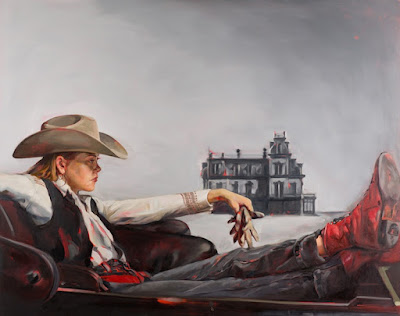On the New Western:
In these circumstances, the Western managed to survive by parodying its own formula restrictions and distorting the classic reader’s expectations of the genre. The Western also became part and parcel of the artistic innovations at hand as it was taken up even by traditionally non-Western writers such as Thomas Berger (Little Big Man, 1964), Ishmael Reed (Yellow Back Radio Broke Down, 1968) and E.L. Doctorow, to name a few. These authors turned to the most popular genre of the time with a double mission: to both deconstruct it, and to use it to revive the traditional novel-writing process through the use of Western elements. The traditional novel, like the Western, was commonly regarded to have exhausted itself.
Saturday, March 25, 2017
Tuesday, March 14, 2017
No more guns in the valley: Logan director James Mangold on Shane
In 2013 James Mangold introduced a screening of the Shane, a movie that was a big influence on Logan.
"The best Western films (and this is an example of the very best) are not centered on nostalgia, are not historical in nature (the moment in history when these films took place is largely a manufacture of imagination). The best of these films create a landscape that has evolved into an American mythology, one as resonant and evocative as Religious parables, Japanese Samurai tales and the Greek Gods of Olympus."
Friday, March 10, 2017
Subscribe to:
Comments (Atom)





